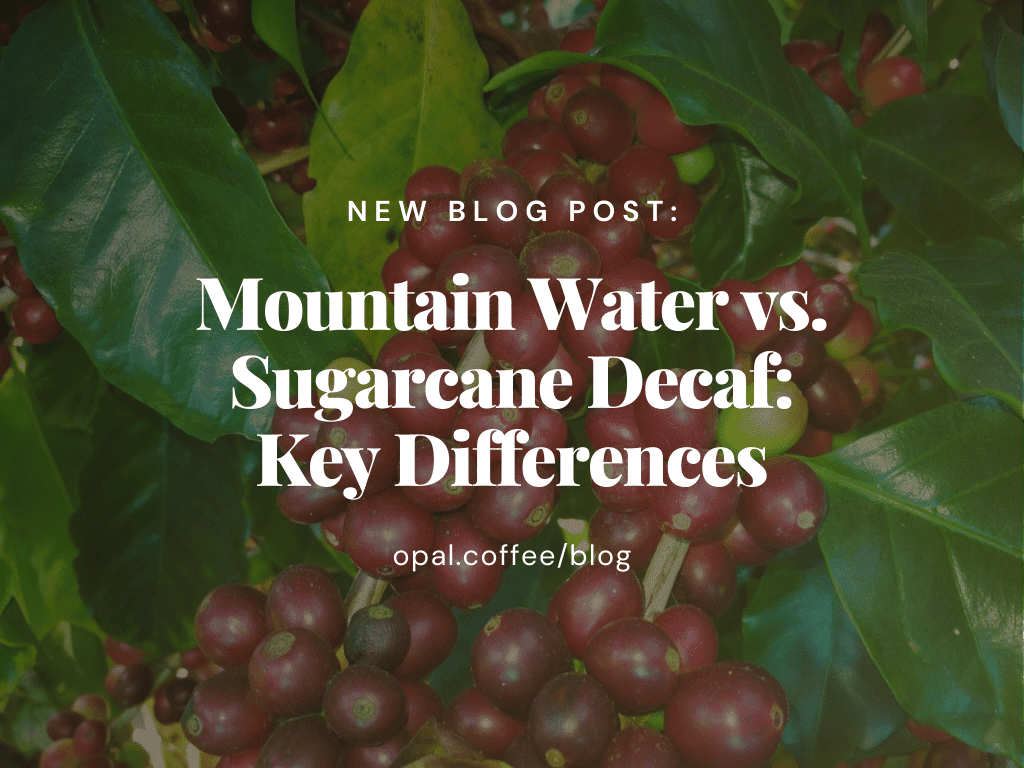
Coffee Varieties Explained
The first blog of the year is going to be about understanding coffee varieties.
With more than 125 coffee species, only two are commercially viable: Coffea arabica and Coffea canephora (robusta).

We recently had some Mountain Water Process Decaf land in New Zealand and we thought this would be a great opportunity to provide some information on the two types of Decaf that we currently have in our warehouses.
The word ‘decaf’ may ruffle a few people’s features but Decaf coffee has come a long way from its traditional reputation. Two popular methods of decaffeination, the Mountain Water Process and the Sugarcane Decaf (also known as the Ethyl Acetate Process), each bring their own characteristics to the coffee experience. Let’s have a look at the two:

The Mountain Water Process is a natural and chemical-free method of decaffeinating coffee. This process uses pure mountain water, typically from the regions surrounding the volcanic mountains of Mexico, hence the name. The method was developed in the 1980s and has gained popularity for its commitment to maintaining the coffee’s flavour integrity.
Since the Mountain Water Process relies solely on water and physical filtration, it tends to preserve the coffee’s original flavour profile quite well. You’ll often find that the coffee retains much of its nuanced taste, making it a favourite among those who don’t want to sacrifice flavour for a lack of caffeine.
This method is considered environmentally friendly because it avoids using chemical solvents, which appeals to many people. The reliance on natural resources (mountain water) and physical filtration means fewer chemicals enter the ecosystem.

The Sugarcane Decaf method uses a natural solvent derived from sugarcane, known as ethyl acetate, to remove caffeine from coffee beans. It’s often referred to as the Sugarcane Process because of its use of this sugarcane-based compound.
Ethyl acetate is an effective solvent for removing caffeine but can sometimes alter the coffee’s flavour slightly. Though many people find that the impact on taste is minimal, it’s still a chemical process and may not preserve the original flavour profile as well as the Mountain Water Process.
The use of ethyl acetate, while derived from natural sources (sugarcane), involves a chemical process that might not be as eco-friendly as the Mountain Water Process. However, the industry is continually improving its practices to reduce environmental impact.
Ultimately, the choice between Mountain Water Process Decaf and Sugarcane Decaf comes down to personal preference and values. If you’re looking for a decaf that maintains the closest flavour profile to regular coffee, the Mountain Water Process is a solid choice. If you’re looking for a more widely available option and don’t mind a slight variation in taste, Sugarcane Decaf could be the way to go.

The first blog of the year is going to be about understanding coffee varieties.
With more than 125 coffee species, only two are commercially viable: Coffea arabica and Coffea canephora (robusta).

In late October and early November, Jason (Opal BNE) and Hengky (Opal SYD) traveled to West Java to visit several coffee farms, with the goal of developing a sustainable and long-term buying plan.
© Copyright Opal Coffee 2025. All Rights Reserved | Privacy Policy — Designed by Hoot Media
